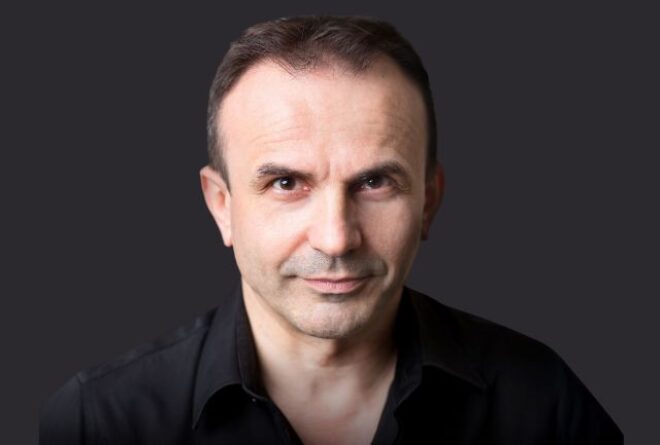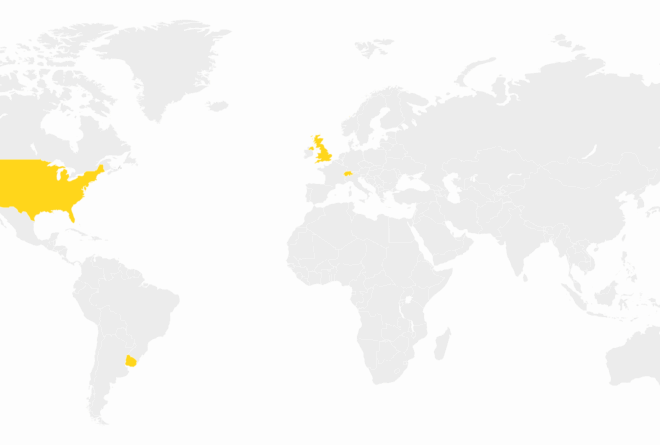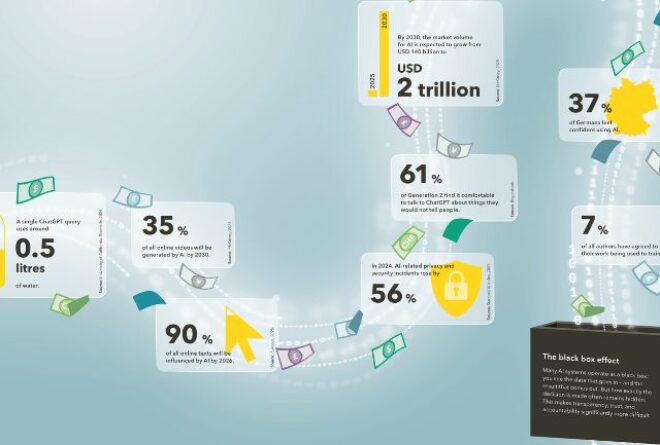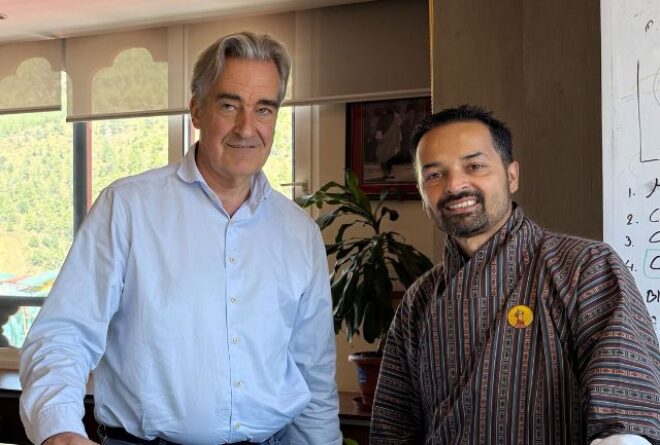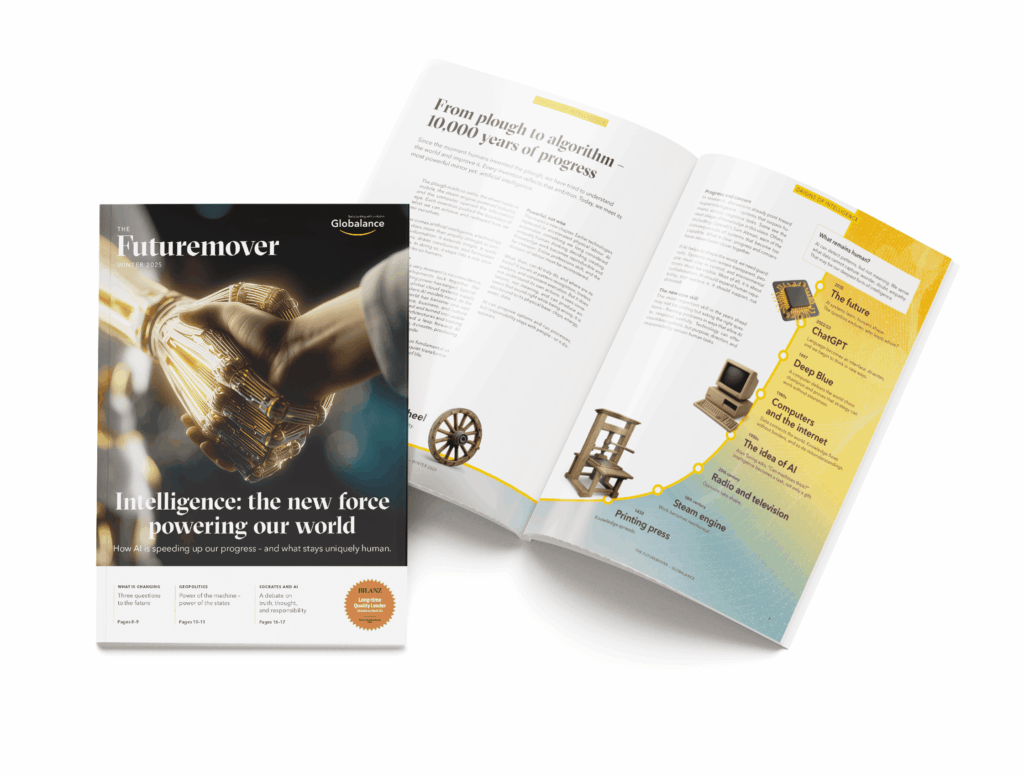News & Trends
A debate between a tourism entrepreneur and a philosopher

He runs luxury hotels at Lake Tegernsee, she is a philosopher critical of consumerism:
Lisz Hirn and Korbinian Kohler discuss whether — and how — we should travel today.

Dr. Lisz Hirn is an Austrian philosopher, author, and lecturer focusing on ethical and consumer-critical issues. Her books include Who Needs Superheroes? What It Really Takes to Save Our World (2020) and The Overrated Human: Anthropology of Vulnerability (2023).
Korbinian Kohler is a hotelier and CEO of the Bachmair Weissach Group, which runs luxury hotels, restaurants, and leisure facilities around Lake Tegernsee.
A trained philosopher, he was named “Hotelier of the Year 2023” for his outstanding work building a unique hospitality experience.
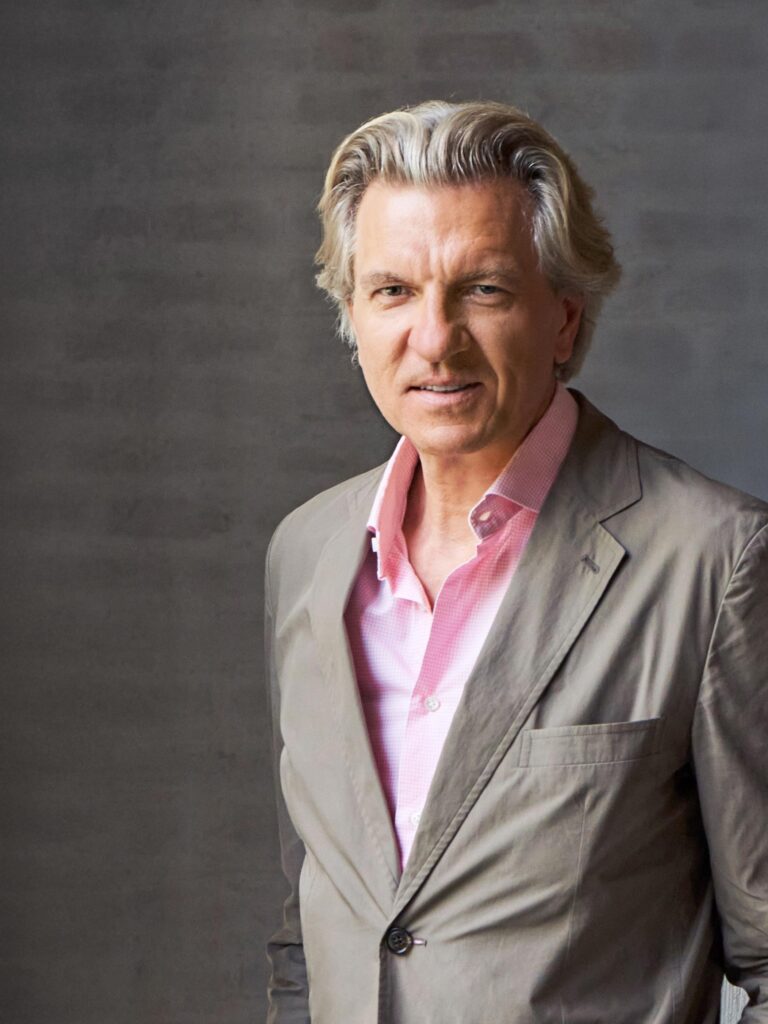
With climate change and ethical concerns on the rise: Is it still acceptable to travel today?
Lisz Hirn (LH): Traveling is not only allowed, it’s necessary. The question isn’t whether we travel, but how. Freedom of movement is a human right – but it comes with responsibility. Not everyone can travel as they please without considering the consequences.
Korbinian Kohler (KK): Why shouldn’t people travel? People have always traveled to connect and broaden horizons. Travel fosters cultural understanding.
In Spain, residents are protesting against overtourism. How does that fit with intercultural exchange?
KK: Overtourism is a luxury problem for locals. These regions rely on tourism to sustain their standard of living. If people are unhappy with that, they should question the system itself – not the tourists.
LH: I understand the frustration when local governments fail to ensure residents’ quality of life. But the problem also lies in the disrespect shown by many tourists. There’s a difference between travelers and tourists: travelers engage with the world they visit, while tourists expect an ice-cold Coca-Cola at any time of the day, anywhere in the world.
Should travelers give something back to the people, culture, and environment they visit?
KK: I don’t see travel taking anything away. On the contrary – it brings money and cultural exchange. Tourism provides many benefits to locals, such as jobs and economic development.
LH: Travelers bear personal responsibility: they should support and respect local communities. But rules are needed too. Nepal is a good example: while it benefits from mountain tourism, it’s overwhelmed by plastic waste. That harms both the destination and its appeal – often because there’s no proper regulation.
On the topic of regulation and environmental protection: Should we set an annual CO₂ budget for travel?
KK: That’s hardly feasible. As a consumer, I don’t think anyone has the right to dictate how much I travel or my CO₂ emissions. Tourism accounts for just eight percent of global CO₂ emissions – and if you exclude accommodation, food, and local transport, it’s only four percent. To me, that’s a price worth paying, since the benefits of travel far outweigh the negatives. But to reduce emissions, society should invest in technologies that lower or capture CO₂. That’s the only way forward.
LH: The idea that technology will solve all problems is dangerous. Of course, we need technology – but also regulations. Technology must not override ethics. In Kenya, for example, plastic bags are banned and the ban is strictly enforced. You simply won’t find them there anymore. That might feel odd to visitors at first. But that’s exactly the point – just like with the ice-cold Coca-Cola example: the freedom to have everything everywhere, anytime, is immoral. There is no right to universal convenience.
Plastic bag ban in Kenya
In effect since 2017, Kenya has the world’s strictest ban on single-use plastic bags. Bags are confiscated upon entry into the country. Offenders face fines of up to $40,000 or up to four years in prison.
«I believe luxury hospitality is the most socially responsible business there is.»
Korbinian Kohler
Who benefits most from today’s tourism — people or capital?
KK: People — especially in my sector, luxury hospitality. Our guests receive exceptional service – which requires a lot of staff. It’s a massive redistribution machine from top to bottom: guests pay high prices for services, and that money is spread across many people in the organization. When this happens sustainably, as in our case, I believe luxury hospitality is the most socially responsible business there is.
LH: It’s not that simple for me. In countries like Tanzania, all travelers want to visit protected national parks where animals are safe. Yet trophy hunting and safari tourism are allowed – because they bring in money. But the indigenous tribes who have lived there for centuries, are no longer permitted to hunt or even live there because tourism generates more money and takes priority. So it’s the capital that benefits.
How can we improve our travel behavior?
LH: Freedom to travel also means a duty not to cause harm. That means traveling consciously, engaging with local realities, and contributing positively.
KK: By traveling! And as much as possible. In the end, travel is a net positive for everyone.
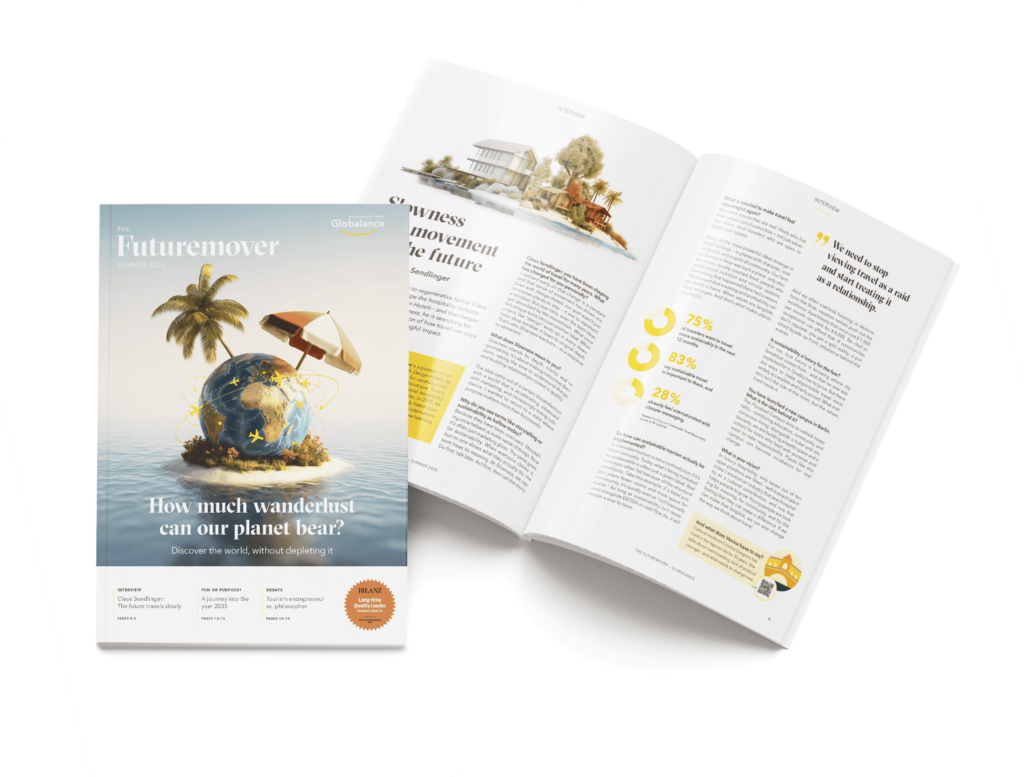
Discover the entire issue
Read more articles from our current issue: ‘How much wanderlust can our planet bear?’.
Be part of the solution and stay informed with the Futuremover.
Subscribe now and shape the future!
Magazin abonnieren EN
"*" indicates required fields
